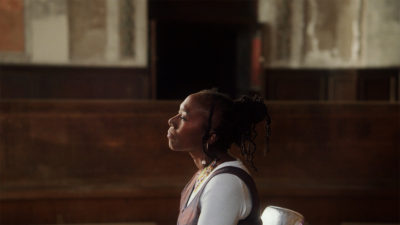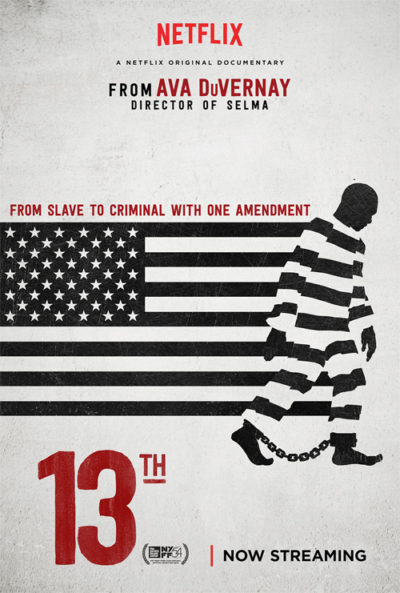Earlier this month, Oakwood student Jessica Sass ’18 attended a free educational screening and Q&A of the documentary film 13th by Ava DuVernay. Below is Jessica’s reaction to the film and its topics:
Apathy is Not an Option: A Student Op-Ed on 13th
Apathy is not an option. The next generation of thinkers and doers see and combat injustices in the world. Most people can relate to feeling being treated unfairly, but it takes a special kind of awareness to understand and act on injustice that may be indirect. I have the option to be blind to the world around me. I can say that injustices simply don’t pertain to me. I consider myself at the beginning of my educational journey about identity. Turning away isn’t an option for me. I have no option but to stand up against violations of civil and human rights around me.
It isn’t until someone is personally affected and their rights challenged, that they begin to realize that problems of inequality and injustice are still very prevalent. I know that I must avoid feeling powerless because of my age at 17 and advocate for people who have been marginalized. While I have had the privilege and option to find my place in the conversation, others are not as visible or vocal or heard. They are reminded of their oppression on a daily basis regardless of which political party is in power. In this current political climate, many people are angry. We have to harness that energy as fuel for change. Actions like marches, protesting, and celebrating diversity should be an ongoing process, not just a one day outing for the cameras.


At Oakwood School in North Hollywood, California I’ve had the opportunity to retrace the steps of Civil Rights leaders walking the Freedom Trail, learn about “The New Jim Crow,” and attend the Student Diversity Leadership Conference where I began to understand the responsibilities that came with my privilege and how I could effectively facilitate change. We are encouraged to have conversations focused on issues around diversity, equity and inclusion inside and outside the classroom. I took an inaugural course in Racial Literacy, and understand how race affects America’s history and present. In analyzing the criminal justice system, we watched the documentary 13th. After watching 13th in class, I was shocked by the fact that there are more people incarcerated in America now than there were slaves during the Civil War. Documentaries, books, newspapers, and blogs are accessible to everyone and are great avenues for education.
All of the classes and causes I’ve committed to participate in have been optional. I have made choices. The irony is that it’s a choice for people in a place of privilege to understand the current racial climate in America. Being white, I can never speak from the “I” perspective when talking about systemic racism. But I can speak from the “I” perspective about taking action. And I can highlight statistics that point to injustice. White men have a 1 in 17 chance of ending up behind bars, for black men it is 1 in 3. The sentences of those 1 in 3 black men, who make up more than 40 percent of the prison population, aren’t just for a term in prison, their sentences are often carried through their lives, long after they leave jail. This is because of the loophole in the 13th Amendment that says, “Neither slavery nor involuntary servitude, except as a punishment for crime whereof the party shall have been duly convicted, shall exist within the United States, or any place subject to their jurisdiction.” Meaning, once someone is convicted, their rights as citizens can be legally taken away. In some states, they don’t allow anyone with a record to vote, a vital right as a citizen. 13th presents mass incarceration as a new form of slavery that many, like me, weren’t aware of.
We say that America is the land of the free. It is the land of opportunity for the privileged, yet, the land of oppression and obstacles for many. Mass incarceration is a new, covert form of slavery. Just because it isn’t overt racism, doesn’t mean that it is any less detrimental. Although viewing 13th may be optional, it’s critical to one’s understanding of the current racial climate and criminal justice system in America. As I grapple with the reality of the times, I will always choose to keep my eyes open, speak truth to power, and celebrate everyone’s uniqueness. I will stand up and resist the temptation to sit down and look away. It’s not an option.

